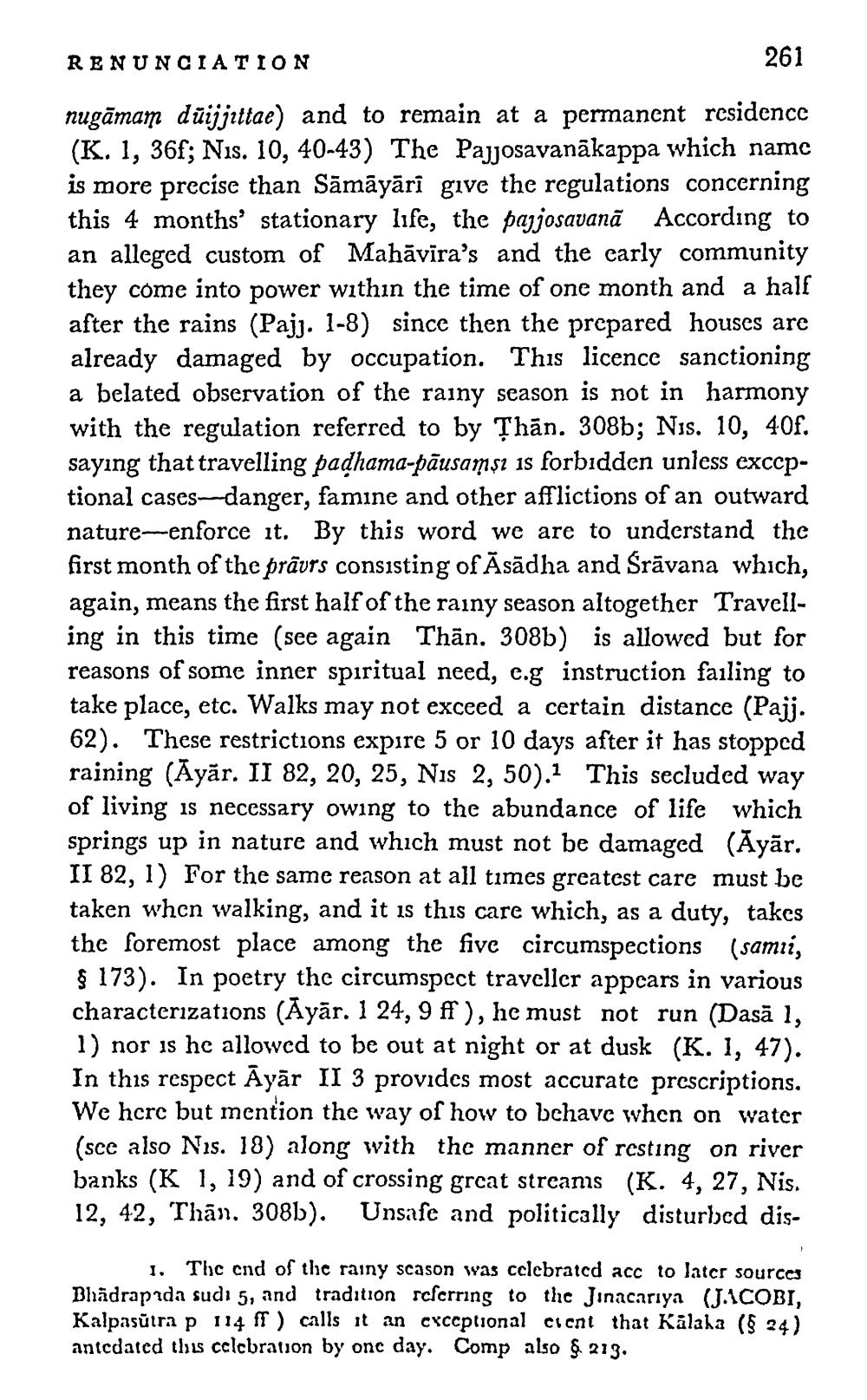________________
RENUNCIATION
261
nugāmam dūijjrttae) and to remain at a permanent residence (K. 1, 36f; Nıs. 10, 40-43) The Pajjosavanākappa which namc is more precise than Sāmāyārī give the regulations concerning this 4 months' stationary life, the pagjosavanā According to an alleged custom of Mahāvira's and the carly community they come into power within the time of one month and a half after the rains (Pajj. 1-8) since then the prepared houses are already damaged by occupation. This licence sanctioning a belated observation of the rainy season is not in harmony with the regulation referred to by Thān. 308b; Nis. 10, 40f. saying that travelling padhama-pāusamși is forbidden unless exccptional cases--danger, famine and other afflictions of an outward nature-enforce it. By this word we are to understand the first month of the prâurs consisting of Āsādha and Śrāvana which, again, means the first half of the rainy season altogether Travelling in this time (see again Thān. 308b) is allowed but for reasons of some inner spiritual need, e.g instruction failing to take place, etc. Walks may not exceed a certain distance (Pajj. 62). These restrictions expire 5 or 10 days after it has stopped raining (Ayır. II 82, 20, 25, Nis 2, 50).1 This secluded way of living is necessary owing to the abundance of life which springs up in nature and which must not be damaged (Āyār. II 82, 1) For the same reason at all times greatest care must be taken when walking, and it is this care which, as a duty, takes the foremost place among the five circumspections (samii, § 173). In poetry the circumspect traveller appcars in various characterizations (Āyār. 1 24,9 ff), he must not run (Dasā 1, 1) nor is hc allowed to be out at night or at dusk (K. 1, 47). In this respect Āyār II 3 provides most accurate prescriptions. We hcrc but mention the way of how to bchave when on water (sce also Nis. 18) along with the manner of resting on river banks (K 1, 19) and of crossing grcat strcans (K. 4, 27, Nis. 12, 42, Thân. 308b). Unsafe and politically disturbed dis
1. Thc cnd of the rainy scason was celebrated acc to later sources Bhadrapada sudi 5, and tradition rcferring to the Jinacariya (J.1COBI, Kalpasūtra p 114 fT) calls it an cxccptional cient that Kalala (524) antcdated the celebration by onc day. Comp also & 213.




